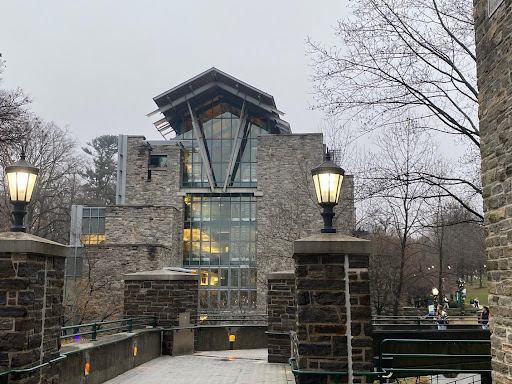Every year, students all over the country check in for their first day of college. For some, it is their first time doing much of life on their own without the guidance of their parents. Often, first-year students are overcome with feelings of anxiety and depression. At Loyola University Maryland, they try to make this transition as easy as possible.
Mike Puma, the current Dean of Undergraduate Studies and former Director of Messina, is quite familiar with the first-year experience and how it can weigh on students, especially those who are far from home. His years in both his current and former positions have shown him what the first-year experience is truly like.
“I think the community – both academic and co-curricular – make the first-year experience at Loyola. For example, Messina advisors are able to get to know their students in class and through one-on-one conversations. This relationship is fundamentally different than a larger institution that does not have faculty advising,” Puma said.
Messina is a required Loyola Maryland-specific program for all first-years that aims at equipping first-year students with the tools necessary for tackling their first year of higher education. Relationships are the basis for Messina, which provides three forms of mentorship; a faculty, a staff member, and an Evergreen, which is an upperclassman student who volunteers to mentor first-years. These programs provided by Loyola are key to growing the community. Larger institutions, such as state schools, tend to not have such programs.
Universities schedule all sorts of events to encourage engagement. At Loyola, they offer a robust Freshman Welcome Weekend, activity and service fairs, buses to off-campus activities, fashion shows, club galas, and Loyolapalooza, the annual student fair. Many of these events are extremely formative in building a strong first-year community, especially at Loyola. Katie Hogan ‘26 is involved in many activities all around campus, including the boxing club.
“I think Freshman Welcome Week was formative in a social aspect. Through Messina, I have been able to make great friends and meet new people,” Hogan said.
Hogan is a student from Massachusetts who is always busy; sometimes it may just be class and homework, and other days it is class, homework, club meetings, and social events. Through the formative Freshman Welcome Weekend and Messina, Hogan has been able to build healthy relationships that keep her grounded in why she is at Loyola. Julius Boucke ‘26 cites the same formative activities.
“The wonderfully planned Messina events, especially the first week here on campus, have been especially formative for my freshman experience,” Boucke said. “As a member of the rowing team, I have been able to meet so many new friends.”
Boucke came to Loyola from New Jersey with the intention of studying chemistry, a field in which his mother has worked for over three decades. He came to Loyola knowing nobody, but through Messina and Freshman Welcome Week, Boucke has met many new friends.
The unprecedented increase in depression and anxiety in students, especially first-year students, takes a major toll and can impact so many different avenues of life.
Puma said, “The rise in mental health concerns has led to many more students who need ongoing support either on campus through the Counseling Center or through off-campus providers. A 16-week semester goes by rather fast and students who feel overwhelmed or are struggling with the transition will fall behind on their coursework. They may stop attending classes or replying to e-mails from their faculty members and advisors.”
At Loyola, students have access to free counseling. The Counseling Center offers both long-term and short-term counseling, group and individual sessions, along with many other forms of counseling. These resources are extremely accessible, and students typically only must wait two weeks for non-emergent appointments. Puma stresses that these services are vital in keeping students, especially first-years, on track with their studies.
“Freshman year can be stressful as you’re moving to a new environment, and a lot of change is happening around you. This can cause a lot of anxiety and stress which ultimately can affect their grades and social life,” Hogan said.
Boucke said, “The increase in mental health concerns is eye-opening. I’ve learned a lot about myself and there is still lots to learn.”
As the increase in mental health concerns rises, Boucke feels it is important to keep learning, not just about the concerns themselves, but for him personally. He hopes to continue to learn more as the year progresses.
“I think it is a combination of people – friends, student leaders, faculty, and others who work on campus. Whether it is someone in their Messina class or an employee at Starbucks or Boulder, I think students seek out people who care for them and want to see them succeed, and we have a lot of caring people at Loyola. Those connections may not always take shape during the first semester, but I always encourage students to continue to look for their people. That is who makes the first-year experience at Loyola,” Puma said.
Featured Image Courtesy of Anthony Abbott.



















































































































